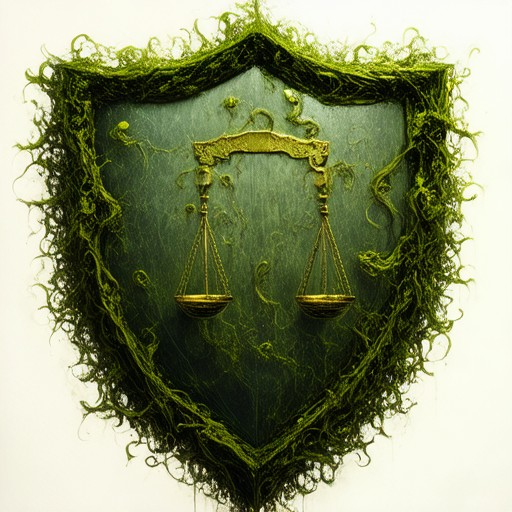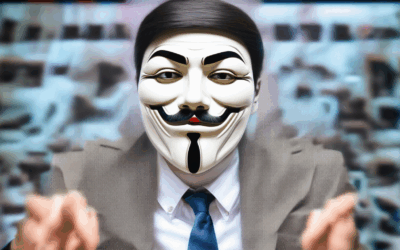In today’s digital age, the concept of free speech has evolved significantly, with anonymity playing a pivotal role in its protection and expression. The ability to communicate without revealing one’s identity has become a cornerstone of modern discourse, offering individuals a safe space to share thoughts, fight for justice, and challenge authority. However, this anonymity is not without its complexities, as it raises questions about accountability, authenticity, and the boundaries of legal protection. This article delves into the intricate relationship between free speech and anonymity, exploring how they intersect and the safeguards put in place to protect this fundamental right. From the legal frameworks ensuring free speech under the First Amendment to the ethical considerations of remaining anonymous, this exploration will shed light on the delicate balance between personal privacy and the public’s right to know. By examining real-world examples and the technological tools that enable anonymous communication, we’ll uncover both the empowering aspects of anonymous speech and the challenges it presents to society at large.
Key Takeaways
- Understand Free Speech Limits: Recognize the legal boundaries to protect rights and society.
- Know When Speech Isn’t Protected: Avoid harmful or threatening speech.
- Avoid Defamation and Libel: Protect your reputation and others’.
- Respect Obscenity Laws: Stay informed about restricted content.
- Protect Minors from Exploitation: Ensure speech doesn’t harm children.
- Grasp the 14th Amendment’s Role: Understand its impact on equality and rights.
- Respect Legal Boundaries: Balance free speech with responsibilities.
- Be Aware of Legal Consequences: Misuse leads to legal action.
- Balance Rights and Needs: Foster harmony through responsible speech.
- Stay Informed About Legal Frameworks: Know the laws to avoid issues.

Can Free Speech Be Anonymous?
Free speech and anonymity are two fundamental rights that often intersect in modern society. The question of whether free speech can be anonymous is rooted in the tension between individual privacy and the public’s right to know. Here’s a breakdown of the key considerations:
Legal Perspective
The right to anonymous free speech is recognized and protected under the First Amendment of the U.S. Constitution. In McIntyre v. Ohio (1995), the Supreme Court affirmed that anonymous speech is a form of protected expression. Courts have consistently held that requiring speakers to disclose their identities imposes a burden on free speech, particularly when it relates to matters of private concern.
Benefits of Anonymous Free Speech
Anonymous communication allows individuals to express themselves without fear of retribution or professional consequences. This can foster open dialogue on sensitive topics, encourage participation in civic discourse, and protect vulnerable groups. Platforms like AnonyPost provide spaces for individuals to share their thoughts and opinions without fear of judgment.
Challenges and Limitations
While anonymous free speech has its advantages, it also raises concerns about accountability and authenticity. Without identification, it becomes harder to verify the credibility of information shared online. This can lead to misinformation spreading unchecked, although platforms may mitigate this through moderation practices.
Examples of Anonymous Free Speech
Anonymous speech is pervasive in online communities, such as forums, chat rooms, and social media. Websites like 4chan and Reddit allow users to post anonymously, facilitating discussions on a wide range of topics. Even platforms like Twitter enable anonymous interactions through pseudonymous accounts.
Competitor Platforms
Other platforms that support anonymous free speech include AnonNews and ProtonMail . These services emphasize user privacy and security, allowing individuals to engage in open discourse without compromising their personal information.
In conclusion, free speech can indeed be anonymous, thanks to legal protections and the availability of platforms designed to facilitate such expressions. However, it is essential to balance the benefits of anonymity with the responsibilities of maintaining truthful and constructive conversations online.
Do I Have a Right to Anonymity?
The right to anonymity is a significant aspect of privacy and is often intertwined with the protection of free speech. In many jurisdictions, including the United States, the First Amendment has been interpreted to safeguard the right to remain anonymous when expressing opinions or engaging in lawful activities.
In McIntyre v. Ohio Elections Commission , the Supreme Court emphasized that a right to anonymity is inherent in the First Amendment. This principle ensures that individuals can participate in public discourse without fear of retribution or judgment, fostering a robust exchange of ideas.
However, this right is not absolute. It may be limited in situations where there is a compelling public interest in disclosure, such as when criminal activity or harm is involved. Courts often balance the individual’s right to anonymity against societal needs, ensuring that privacy is respected without compromising public safety or national security.
Globally, the concept of anonymity varies. In countries like those in the European Union, stricter privacy laws such as GDPR provide robust protections for individuals, though these may not always apply universally. Online platforms also play a role in shaping expectations around anonymity, often requiring users to provide personal information for services but generally respecting their choice to remain pseudonymous.
Ultimately, the right to anonymity is a fundamental aspect of digital privacy, enabling individuals to express themselves freely while safeguarding against potential harm. While it is recognized in many legal systems, its application and enforcement can vary depending on the context and jurisdiction.

Words Not Protected by Freedom of Speech
Freedom of speech is a fundamental right in many countries, but it is not absolute and subject to certain exceptions. Below are categories of speech that are not protected by freedom of speech:
- Illegal Speech: Speech that constitutes a crime, such as incitement to violence, threats, or distribution of illegal material.
- Hate Speech: Speech that incites hatred or violence against a particular group or individual, provided it does not lead to imminent harm.
- Harassment: Speech that intentionally threatens, insults, or demeans someone in a way that creates a hostile environment.
- Defamation: False statements of fact that harm someone’s reputation, provided they are published or distributed.
- Fighting Words: Vulgar or offensive words that have the primary effect of insulting or inciting anger, particularly if they create a breach of the peace.
- Threats: Statements that directly threaten physical harm to someone, which are not protected under freedom of speech.
It is important to note that the extent of protection for free speech varies by country and jurisdiction. In the United States, these exceptions are often interpreted under the First Amendment, balancing free expression with public safety and social order.

Five Limits to Free Speech
The First Amendment to the United States Constitution guarantees the right to free speech, but this right is not absolute and subject to certain limitations. These limits are essential to protect public safety, national security, and the rights of others. Below are the primary categories of limitations:
- Incitement : Speech that aims to provoke violent or unlawful action is restricted. For example, advocating the overthrow of the government or encouraging others to commit crimes falls under this category.
- Defamation : False statements of fact that harm someone’s reputation can lead to legal consequences. Libel and slander are forms of defamation protected under the law.
- Fraud : Misleading or deceptive speech intended to gain unfair advantage, such as false advertising or phishing schemes, is prohibited.
- Obscenity : Material deemed vulgar, lewd, or sexually explicit may be restricted, particularly when it is deemed harmful or offensive to the audience.
- Child Pornography : Any speech or material involving children in a sexual context is illegal and strictly prohibited.
These limits ensure that free speech does not infringe upon the rights of others or threaten societal order. It is important to respect these boundaries while exercising your rights under the First Amendment.
For further reading, explore the First Amendment section on the official U.S. government website for a deeper understanding of its protections and limitations.
What is Not Covered by Freedom of Speech?
Freedom of speech is a fundamental right that protects the expression of ideas, opinions, and information. However, it is important to understand that this right is not absolute and does not protect certain types of speech. Below are key areas that are typically not covered by freedom of speech:
- Harmful Speech: Speech that incites violence, hatred, or discrimination against a person or group based on race, religion, gender, etc., is often not protected.
- Threats: Making threats of violence or harm against individuals or groups can be restricted under the law.
- Defamation: Spreading false information that damages someone’s reputation may fall outside the bounds of free speech.
- Incitement to Violence: Using speech to encourage others to commit illegal or harmful acts can be prohibited.
- Speech Causing Panic: In situations of public emergency, speech that could lead to public disorder or panic may not be protected.
- Commercial Speech: False or misleading advertising and other forms of commercial speech may not qualify as protected under freedom of speech.
- Obscenity: Speech that is deemed lewd, vulgar, or sexually explicit is often not protected.
- Intellectual Property: Using copyrighted material without permission may not be covered by freedom of speech.

The 14th Amendment in Simple Terms
The 14th Amendment of the United States Constitution is a key document that guarantees several fundamental rights and protections for all Americans. It consists of two main parts:
- Due Process Clause : This part ensures that no state may deprive any person of “life, liberty, or property” without due process of law. This means the government must provide fair procedures before taking away someone’s basic rights.
- Equal Protection Clause : This clause ensures that no state can deny any person equal protection under the law based on race, color, or previous condition of slavery. It has become a cornerstone of civil rights in the United States.
The 14th Amendment was adopted after the Civil War and was intended to help former enslaved people gain access to citizenship and legal rights. Over time, its interpretation has expanded to protect many more rights and ensure equality before the law.
This amendment has been instrumental in landmark Supreme Court cases, like Brown v. Board of Education , which ended racial segregation in public schools, and Loving v. Virginia , which struck down laws banning interracial marriage.
In simpler terms, the 14th Amendment helps ensure that everyone in the United States is treated equally and fairly under the law, protecting fundamental rights and promoting justice.




0 Comments